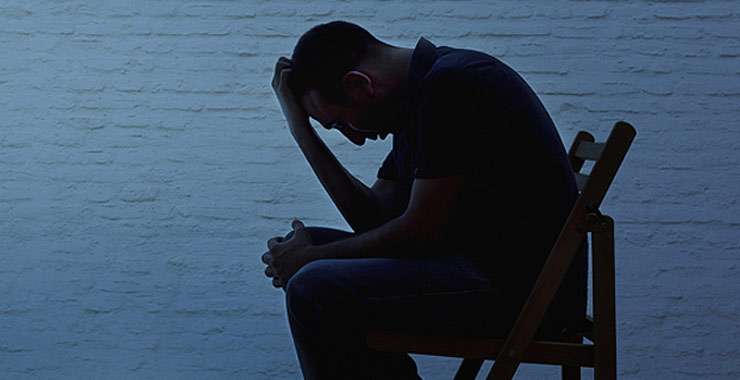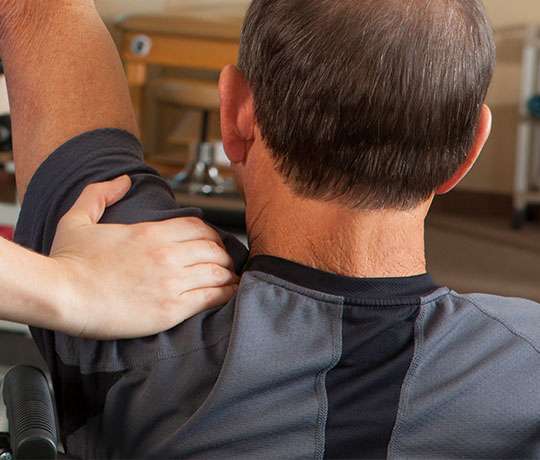Depression is a serious mood disorder, with an estimated 17 million American adults having at least one major depressive episode in the past year. It can affect how you think, feel, interact with people, and handle daily life. It can cause feelings of sadness and a loss of interest or pleasure in things you once enjoyed. Anyone can be affected by depression, and it can happen at any age, but it often begins in adulthood.
The good news is, depression is highly treatable, with reports of 80% to 90% of people eventually responding well to treatment. One of the reasons depression responds so well to treatment is that improvements can be found in medications, psychotherapy, or the combination of both. Finding the right psychotherapist who can help you understand and work through the underlying causes of depression as well as develop coping strategies to deal with the symptoms is often the first step to feeling better.
If you or a loved one are struggling with depression, contact the Substance Abuse and Mental Health Services Administration (SAMHSA) National Helpline at 1-800-662-4357 for information on support and treatment facilities in your area.
For more mental health resources, see our National Helpline Database.
Types of Depression
Diagnosing depression requires an evaluation process involving a physician or mental health professional. In general, to be diagnosed with depression, symptoms need to be present for at least two weeks.
There are several types of depressive disorders as defined by the DSM-5, including, but not limited to, major depressive disorder and persistent depressive disorder. There are also specifiers for major depressive disorder such as major depressive order with a seasonal pattern (previously known as seasonal affective disorder) or major depression with peripartum onset (often known as postpartum depression).
Treating Depression
Depression is often treated with medications called antidepressants, therapy, or a combination of the two. There are several types of antidepressant medications available. It may take some time to find the right one for you, so working closely with your doctor is critical during this time. Even with the right medications, it often takes some time to notice an improvement in how you feel.
Treating depression with therapy or psychotherapy has proven helpful in both short-term and long-term cases of depression. Like medications, there are various forms of therapy and experts to choose from. Some of the more common evidence-based approaches include cognitive-behavioral therapy (CBT), interpersonal therapy (IPT), psychodynamic psychotherapy, and problem-solving therapy.
Counseling vs. Psychotherapy
Treating depression with “talk therapy” is often the first step with mild to moderate depression. Many experts will go this route prior to trying medication. If depression is more severe, medication will often be required and a combination of therapy and medication may happen at the same time. Before moving forward, it’s important to understand the differences between counseling and psychotherapy.
The terms “psychotherapy” and “counseling” are often used interchangeably. While the two are very similar, it’s important to note that sometimes, psychotherapy with a licensed psychologist or psychiatrist (MD) is considered more of a long-term approach that focuses on depression and deeper issues that are significantly impacting your life. Counseling, on the other hand, is seen more as a short-term therapy that may focus more on mild to moderate symptoms and outward functioning and behavior.
Counseling for Depression
The length and severity of the symptoms and episodes of depression often determine the type of therapy. If you’ve been depressed for a length of time and the symptoms are severe, working with a psychiatrist or psychologist (PsyD) may be necessary, since they deal more with issues from the past that may be deeply rooted in your present feelings. But if the symptoms of depression are more recent or not as severe, working with a therapist in a counseling relationship may be helpful.
During counseling, the therapist will use “talk therapy” to help you understand and work through the issues that are impacting your life in negative ways. Their role is to listen, provide feedback, and work with you to develop strategies to cope. They will also evaluate your progress and adjust the sessions accordingly. You may be asked to do homework that extends the learning from the counseling sessions. Often, this is in the form of tracking moods and feelings.
Counseling for depression focuses more on present thoughts, feelings, and behaviors and how these things are affecting your life currently. That’s why CBT has been a useful model to use in counseling sessions.
With CBT, the therapist can help you change negative thinking that may be making the symptoms of depression worse. The focus is goal-oriented, with you, the patient, taking an active role.
Since CBT is generally considered short-term therapy, it’s often a top choice for therapists when working with mild to moderate cases of depression that may not need long-term, in-depth psychotherapy. Evidence suggests that CBT works well in counseling for depression. It’s also proven to reduce relapse or recurrence rates of depression once counseling has ceased.
Interpersonal therapy (IPT) is another brief or short-term method used in counseling for depression that focuses on interpersonal conflict and poor social support, which can lead to feelings of depression. This type of therapy can help you communicate better and address issues that make the symptoms of depression worse. Evidence suggests that IPT is effective in acute treatment of depression, and it may help prevent new depressive disorders.
Other Treatment Options
There are also some other treatment modalities that may be worth considering. For more severe and refractory cases of depression, electroconvulsive therapy (ECT) may be useful. There are also complementary and alternative approaches that might provide additional benefits.
How to Find a Counselor
Finding the right counselor, psychologist, or mental health expert to work with may take some time. When it comes to counseling for depression, the relationship between patient and counselor is key to the success of the therapy. It’s important to be patient and open to the process. You may find that you need to see a few people before finding someone you can develop the best working alliance with.
If you’re not sure where to look, a good place to start is with your doctor. You can also contact any larger mental health facilities in your area. While they may not offer the services you need, they will likely know of counselors close to where you live that provide therapy for depression.
Another place to find referrals online is through one of the professional organizations such as the American Psychological Association or the Anxiety and Depression Association of America. Many of them have online directories that allow you to search for mental health experts in your area.
Finally, spend some time researching the experts in your area. Go online and read their bios. Send an email asking for more information about their preferred forms of treatment and how they interact with clients. Many therapists offer a free intro session to see if it is a good fit. Find out if they offer a free trial session and give it a try.
One other form of counseling to consider, especially for more mild forms of depression, is online therapy. The popularity of online therapy has increased in the last few years and has accelerated considerably in the current pandemic.
Online resources and apps such as Talkspace offer support via a desktop or mobile app with a variety of services including individual sessions and other mental health resources that can help you work through issues related to depression, and come up with and practice coping strategies.
A Word From Verywell
Living with depression can feel overwhelming at times. Working with a mental health expert in a therapeutic relationship provides you with a safe environment to identify the thoughts, feelings, and patterns of behavior that are contributing to your symptoms. Counseling can also help you learn new coping skills and techniques to better manage the symptoms.
Short-term counseling, which typically lasts less than six months, is often appropriate for mild to moderate depression. If you feel like you could benefit from counseling for depression, talk with your doctor about getting a referral. Finding someone you trust and feel comfortable opening up to is critical in the success of the counseling process.
How Therapy For Depression Works
Psychotherapy (or talk therapy) refers to talking through any and all mental and emotional struggles you’re having with a licensed mental health therapist.
Therapy provides a space to identify factors that contribute to your depression and develop healthy strategies to deal with them.
Sometimes it’s used as a stand-alone treatment for depression, but it may be used in conjunction with medication for more severe depression.
During a session, your therapist may work with you to do the following:
-
Identify distorted thought processes that make you feel hopeless, helpless or insecure.
-
Hone in on past and current life events that contribute to depression and find ways to accept, understand or change them.
-
Understand why certain things bother you.
-
Develop actionable coping skills for depression symptoms and managing stress.
-
Notice early signs that your depression might be getting worse.
-
Set realistic goals for the future.
-
Improve relationships with family and friends.
-
Learn how to talk to other people about your depression.
Each appointment is basically a problem-solving session in which you’re invited to talk about your life and the challenges you’re facing, and whether there are goals you’d like to achieve.
Your therapist then helps you address these issues so you can live a happier, more fulfilling life.
Once you start therapy for depression, you won’t necessarily be in it forever. How frequently you engage simply depends on your situation.
Some people see a therapist weekly or bi-weekly for several months or longer, then scale back to periodic check-ins — sort of like little mental health tune-ups.
How Effective Is Therapy For Depression?
Most mental health professionals would agree that therapy is a powerful tool for treating depression. But how effective is it, really?
While results will vary depending on the specific type of therapy used, how well you click with your therapist (it’s not always a match!), and how committed you are to self-improvement, here’s some encouraging data if you need a little motivation:
Therapy Helps Most People Who Try It
About 75 percent of people who try psychotherapy experience some benefit, and the average person who participates in therapy is better off by the end of treatment than 80 percent of people who don’t receive treatment, according to the American Psychological Association (APA).
Some experts believe that cognitive behavioral therapy (CBT) — one of the most well-supported types of therapy for depression — may provide a viable alternative to antidepressant medications, even for some people with severe depression.
your mental health journey starts here
Virtual Therapy Works, Too
While more research is needed on the benefits of online-based therapy, the data so far is promising.
In one small study, people participating in an eight-week online therapy session for depression based on CBT principles experienced equal benefits to those engaging in face-to-face therapy.
In fact, continued symptom reduction three months after the treatment was only observed in the online group, which would indicate virtual therapy may be more efficacious in the long term.
In another study, online therapy patients were surveyed about their experience and nearly all of them were satisfied with their sessions and felt comfortable presenting the same information to their therapist virtually as in person.
It Bolsters The Benefits of Antidepressants
No one says you need to do therapy and therapy alone — but if you do take drugs for depression such as selective serotonin reuptake inhibitors (SSRIs), therapy can be a great complementary treatment.
Research, including a meta-analysis of 115 studies, suggests that combining cognitive behavioral therapy with antidepressant medication is significantly more effective for treating depression than just medication.
Therapy Triggers Positive Changes In The Brain
Several studies have shown that various types of psychotherapy (e.g. CBT, interpersonal therapy, psychodynamic therapy) positively alter brain function in people with major depression.
Often, these brain changes are similar to changes that occur while taking antidepressants, such as increased activity in a brain region called the hippocampus.
This is encouraging, since studies show that the hippocampus (and some other areas of the brain) can actually shrink during depressive episodes.
Results May Be Felt Within Weeks
When you’re depressed, relief can’t come soon enough. And while everyone’s results are different depending on their initial needs and goals, people in therapy generally begin to feel better within six to 12 sessions.
Therapy Helps Prevent Depression Relapse
Therapy isn’t just an in-the-moment fix. It can help you develop the skills and tools to notice and address worsening depression symptoms before they’re out of control, and this may help you avoid a serious relapse.
Research suggests that CBT has a long-lasting effect that can protect against depression relapse, even after the end of active therapy treatment. However, the same is not true for antidepressant medication alone.
Types of Therapy Used for Depression
When you start Googling, you’ll see many types of therapy out there, but don’t stress too much about selecting just the right one for your depression.
The truth is, a variety of approaches are effective — and often, therapists combine elements from several styles of psychotherapy, tailoring treatment to someone’s specific needs.
But familiarizing yourself with a few respected approaches can be helpful when finding a good therapist or online therapy tool.
According to the APA, two of the most common evidence-based therapies for depression are cognitive behavioral therapy (CBT) and interpersonal therapy (IPT). Here’s a quick rundown:
Cognitive Behavioral Therapy (CBT)
Cognitive behavioral therapy is a form of therapy that focuses on the connection between thoughts, feelings and behaviors and how they may influence depression and overall mental health. According to the APA, CBT is based on these core principles:
-
Psychological problems are based, in part, on faulty or unhelpful ways of thinking.
-
Psychological problems are based, in part, on learned patterns of unhelpful behavior.
-
People suffering from psychological problems can learn better ways of coping with them, thereby relieving their symptoms and becoming more effective in their lives.
During CBT sessions, patients work with a therapist to identify these negative or distorted thoughts, inaccurate beliefs and harmful behavior patterns that are contributing to their depression.
Sometimes, therapists give patients homework — like a journaling exercise — to help identify these thoughts, beliefs and behaviors in “real life;” not just during a session.
Then, therapists and patients come up with healthier ways to cope and move forward, whether that’s with positive self-talk, reframing situations, role playing different scenarios and behaviors or learning ways to calm and center the mind and body.
Interpersonal Therapy (IPT)
Interpersonal therapy is based on the idea that depression can be related to conflicts within our relationships and poor social support.
It’s a short-term form of treatment (usually lasting 12 to 16 weeks) with the goal of improving social functioning and relationships with your partner, friends, family and coworkers to help resolve symptoms of depression.
People undergoing IPT therapy will learn how to better express their emotions, improve the way they communicate and relate to others, solve interpersonal problems in healthier ways and increase their level of social support so they can better cope with depressive symptoms.
Of course, there’s more than just these two types of therapy for treating depressive disorders.
psychiatrist-backed care, all from your couch
Therapy For Depression
Therapy, whether it’s online or in-person, is a highly effective treatment for depression if you give it enough time and are committed to the process.
And if you take medication for depression already, layering on therapy may increase your odds of finding relief.
Just keep in mind, therapy alone won’t cut it for everyone — treatment of depression may take a bit of trial and error.
Sometimes it requires a multi-pronged approach involving therapy, antidepressant medication, managing your other health conditions and making targeted lifestyle changes, from getting enough physical activity to prioritizing good sleep and nutrition.
Bottom line: therapy is a powerful tool for depression, but it’s not your only tool — and that should feel empowering!
18 Sources
Hims & Hers has strict sourcing guidelines to ensure our content is accurate and current. We rely on peer-reviewed studies, academic research institutions, and medical associations. We strive to use primary sources and refrain from using tertiary references.
- Major Depression. (2019, February). Retrieved from
https://www.nimh.nih.gov/health/statistics/major-depression.shtml
- Czeisler, M.É., Lane, R.I., Petrosky, E., et al. (2020, August). Mental Health, Substance Use, and Suicidal Ideation During the COVID-19 Pandemic. MMWR Morb Mortal Wkly Rep 2020;69:1049–1057. Retrieved from
https://www.cdc.gov/mmwr/volumes/69/wr/mm6932a1.htm
- What is Depression? (n.d.). Retrieved from
https://www.psychiatry.org/patients-families/depression/what-is-depression
- Facts & Statistics. (2021, April 21). Retrieved from
https://adaa.org/understanding-anxiety/facts-statistics
What is Depression? (2020, October). Retrieved from
https://www.psychiatry.org/patients-families/depression/what-is-depression
Overcoming depression: How psychologists help with depressive disorders. (2016, October 1). Retrieved from
https://www.apa.org/topics/depression/overcoming
- Mental Health Conditions: Depression and Anxiety. (2021, February 15). Retrieved from
https://www.cdc.gov/tobacco/campaign/tips/diseases/depression-anxiety.html
- What is Psychotherapy? (2019, February). Retrieved from
https://www.psychiatry.org/patients-families/psychotherapy
- Driessen, E., & Hollon, S. D. (2010). Cognitive behavioral therapy for mood disorders: efficacy, moderators and mediators. The Psychiatric Clinics of North America, 33(3), 537–555.
https://doi.org/10.1016/j.psc.2010.04.005
. Retrieved from
https://www.ncbi.nlm.nih.gov/pmc/articles/PMC2933381/
- Wagner, B., Horn, A. B., & Maercker, A. (2014). Internet-based versus face-to-face cognitive-behavioral intervention for depression: a randomized controlled non-inferiority trial. Journal of Affective Disorders, 152-154, 113–121. Retrieved from
https://www.sciencedirect.com/science/article/abs/pii/S0165032713005120
- Urness, D., Wass, M., Gordon, A., Tian, E., & Bulger, T. (2006). Client acceptability and quality of life–telepsychiatry compared to in-person consultation. Journal of Telemedicine and Telecare, 12(5), 251–254. Retrieved from
https://journals.sagepub.com/doi/abs/10.1258/135763306777889028
- Gautam, M., Tripathi, A., Deshmukh, D., & Gaur, M. (2020). Cognitive Behavioral Therapy for Depression. Indian Journal of Psychiatry, 62(Suppl 2), S223–S229. Retrieved from
https://www.ncbi.nlm.nih.gov/pmc/articles/PMC7001356/
- Karlsson, H. (2011, August 12). How Psychotherapy Changes the Brain. Psychiatric Times. Vol 28 No 8, Volume 28, Issue 8. Retrieved from
https://www.psychiatrictimes.com/view/how-psychotherapy-changes-brain
- Taupin P. (2006). Neurogenesis and the effect of antidepressants. Drug Target Insights, 1, 13–17. Retrieved from
https://www.ncbi.nlm.nih.gov/pmc/articles/PMC3155214/
- Palazidou E. (2012). The neurobiology of depression. British Medical Bulletin, 101, 127–145.
https://academic.oup.com/bmb/article/101/1/127/262645
- Understanding psychotherapy and how it works. (2020, July 31). Retrieved from
https://www.apa.org/topics/psychotherapy/understanding
- What Is Cognitive Behavioral Therapy? (2017, July). Retrieved from
https://www.apa.org/ptsd-guideline/patients-and-families/cognitive-behavioral
- Markowitz, J. C., & Weissman, M. M. (2004). Interpersonal psychotherapy: principles and applications. World psychiatry: official journal of the World Psychiatric Association (WPA), 3(3), 136–139. Retrieved from
https://www.ncbi.nlm.nih.gov/pmc/articles/PMC1414693/



